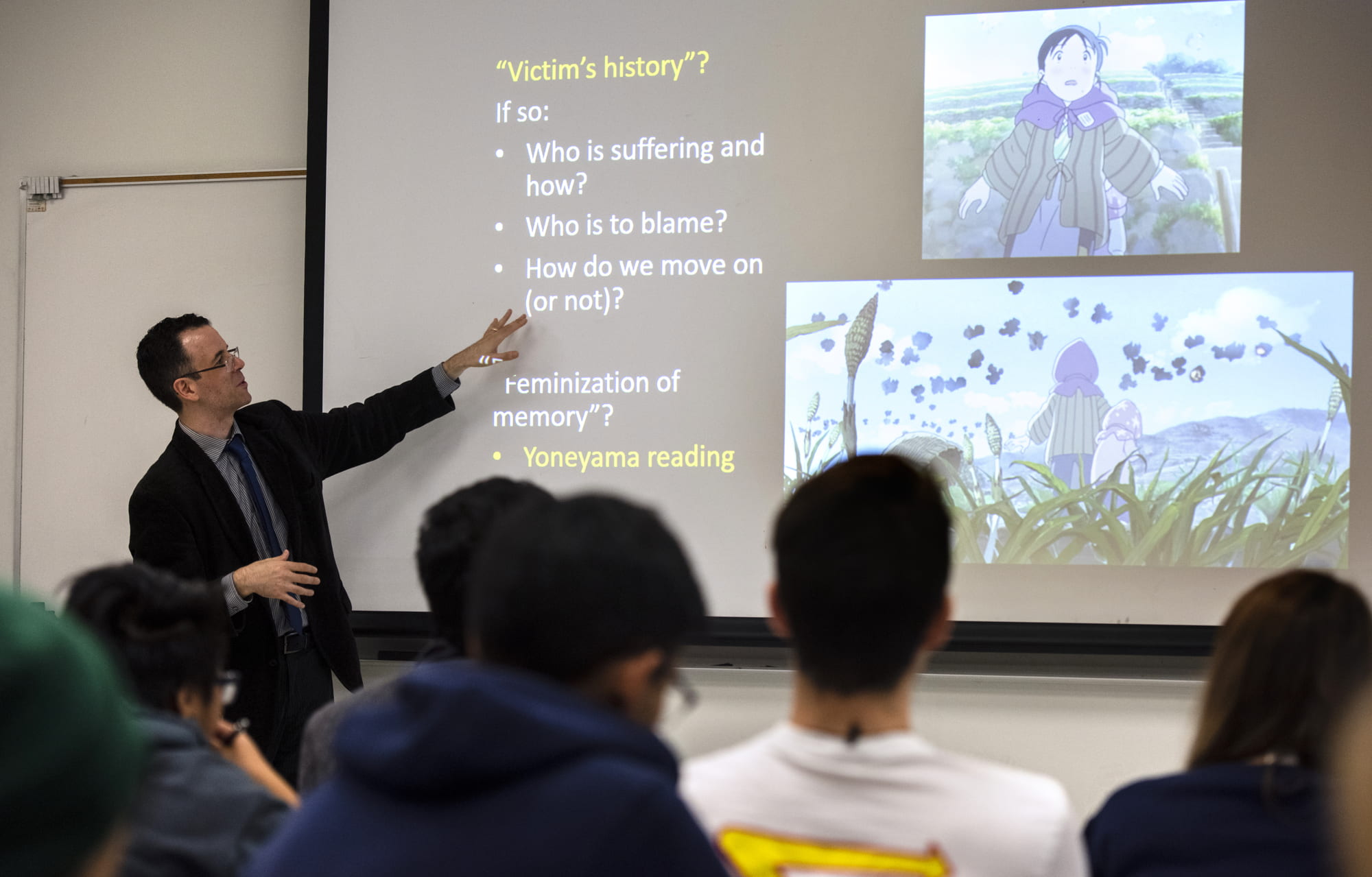Making choices
Robert Cohen combines professional skill with scholarly achievement
Award-winning drama professor Robert Cohen approaches teaching by exploring the “what for” of a character’s style.
For what reason does Henry V speak in ascending cadences, Romeo in sonnet form or Hermione in long sentences? Why does Hamlet wear a suit of inky black, Sir Andrew place his feet in a ballet fourth position?
“Literary folks will tell you why Shakespeare makes these choices, but I work on why the character would choose to make them, even unconsciously, and then how the actor makes the same choice on behalf of his or her character,” says Cohen, the Claire Trevor Professor of Drama at UCI.
“This aligns the character’s situational goal with the more superficial aspects of his/her performance—speaking style, behavior, movement, dress and so forth.”
Convinced that teaching would be his ideal career, Robert Cohen discovered his true calling at age 16 when he directed St. Joan at a boys’ camp in northeastern Pennsylvania.
Today Cohen teaches graduate and undergraduate acting specializing in Shakespeare, acting theory and acting-directing. He has been called a “Renaissance man of the theater” by theLos Angeles Times. He is a well-respected teacher, author, scholar, director, critic and playwright.
“Professor Cohen is probably the best-known American educator combining high-level professional/directorial with scholarly/critical achievements,” says Cameron Harvey, current chair of the drama department and a former student of Cohen’s. “He has developed an integrated theory and systemized approach to acting that directs a precise alignment of the actor’s, the character’s and the author’s goals. These ideas are widely and increasingly accepted today and have made a truly international impact.”
Cohen moved to the forefront of the post-Stanislavski acting theorists and teachers in the mid-70s with his investigation into the psychological and artistic processes of acting, supported in part by a grant from the National Science Foundation. His research led to a series of innovative acting classes and to the publication of Acting Power. This seminal book has enormously influenced both acting and acting pedagogy throughout America and abroad by restructuring acting theory and instruction and staking out new ground on the mental and physical processes of acting. It has been translated and published in Finnish, Hungarian and Estonian. He’s been invited to teach, lecture and direct around the United States and in Australia, France, Hungary, Finland, Estonia, Sweden, Morocco, Hong Kong, Canada and Costa Rica.
Cohen joined the faculty of the newly opened UCI campus in 1965, fresh out of the Yale School of Drama with a doctorate in fine arts. He weighed his two job offers—UC Berkeley or UC Irvine—and chose the new campus. “Irvine offered a more performance-oriented program and was not wedded to a purely academic ideology,” Cohen says. “Besides, I was excited by the prospect of building a drama program completely from the ground up, which we have done.”
As founding chair of the drama department for 25 years, Cohen has had a director’s role in its growth and development. U.S. News & World Report‘s most recent national rankings of graduate programs place UCI’s drama and theater program at 12th. Students from all over the world—Europe, Asia and Canada—come to UCI to study drama.
Although Cohen has traveled the world as a guest lecturer and director at universities and theaters, he has never thought about leaving his UCI post. “I’m inspired by the talents and fresh personalities of my students and their willingness to explore the scariness of the characters they play, the theatrical ‘magic’ of empathy with characters, and therefore actors, that truly struggle,” Cohen explains. He is rewarded by the commitment and growth of his students and especially when and if they eventually succeed in their future lives and careers. Cohen stays in contact with hundreds of drama alumni, tracking their success.
“I also think Irvine is the perfect location—near Los Angeles and the beach—and I’m perfectly suited for teaching at a research university. What is asked of you is to be curious and creative, to find new ways to teach and write,” Cohen says. “I love history, politics, literature, learning about other cultures—drama is all that.”
